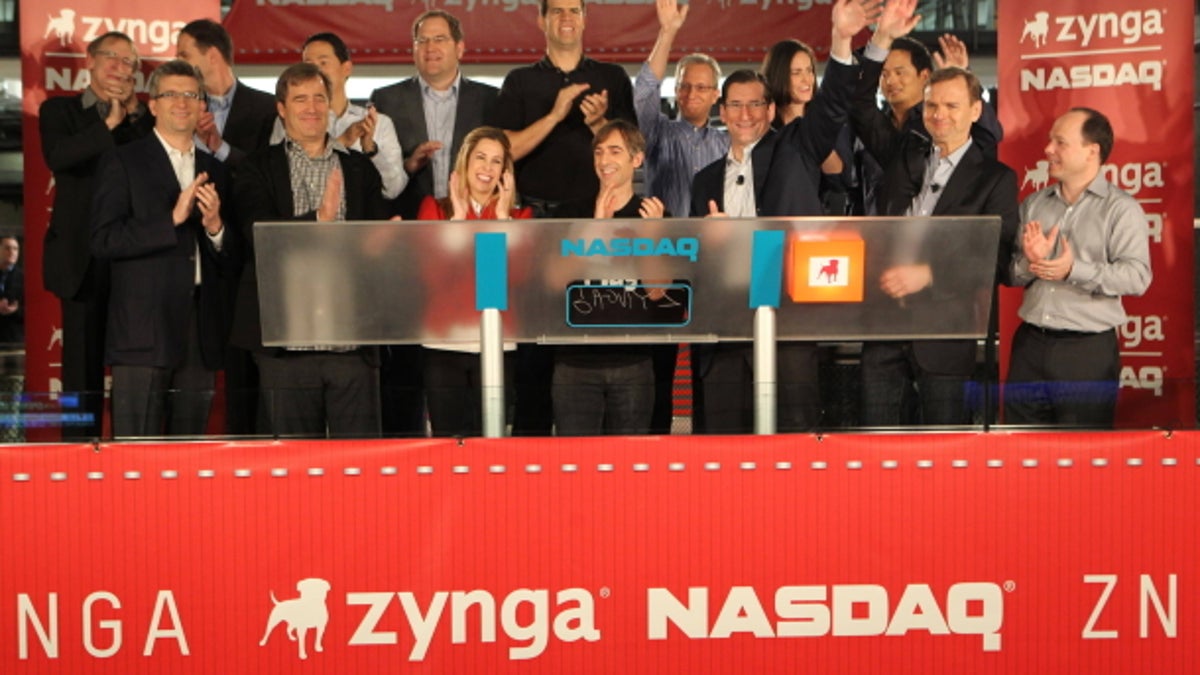Zynga plans secondary offering to fend off stock price drop
The social-gaming company says that the maximum proposed offering will total $400 million, but it won't receive any of the proceeds of the sale.

In an attempt to fend off the possibility of its stock price plummeting, Zynga has announced plans to increase its public float.
The social-gaming company revealed in a Securities and Exchange Commission (SEC) filing today that some shareholders will sell up to $400 million of their shares in a secondary stock offering. The move comes just a few months after Zynga went public, and before the end of the 165-day lockout period that bans shareholders from selling any shares.
If this sounds familiar, it's because LinkedIn made a similar decision back in November, offering 8 million shares in a secondary offering. Although LinkedIn netted $100 million in the sale, the move had nothing to do with raising cash. Instead, the company wanted to protect its stock price following the lockout period, which would give its top investors free rein to dump shares by the millions. That would have resulted in a huge drop in the company's share price.
From an investment perspective, the issue at hand is called the "float," which refers to the difference between a company's total outstanding shares and its restricted shares. The smaller the float, the more volatile a stock might be. Zynga's float was relatively small at its IPO, forcing the company to take this step now before shares plummet following the lockout period.
"The principal purposes of this offering are to facilitate an orderly distribution of shares and to increase our public float," the company wrote in its SEC filing.
Zynga will not raise any cash in the secondary offering. In addition, the Wall Street Journal is reporting, citing sources, that Zynga has forced some shareholders looking to sell now to agree to an extended lockout period to "stagger" sales and ensure the company's shares won't be hit hard at any given time.
Still, the last few months have been kind to Zynga's shares. After going public at $10 and watching its shares fall in its first day, Zynga has been able to turn things around and is currently trading at $13.70, representing a 44 percent gain since it went public. Zynga's shares were boosted last month when Facebook filed for its IPO and revealed that Zynga is a key component in its success.
"We view Facebook's IPO S-1 filing earlier today as a meaningful positive for Zynga," BTIG Research wrote to investors last month. "Zynga is so important to Facebook that it is cited as a risk factor [for Facebook], with Zynga accounting for 12 percent of Facebook's 2011 revenues. Twelve percent equates to about $445 million of Facebook's 2011 revenues, including Facebook's share of Zynga gamers' virtual currency purchases and Zynga's advertising purchases on the Facebook platform."

